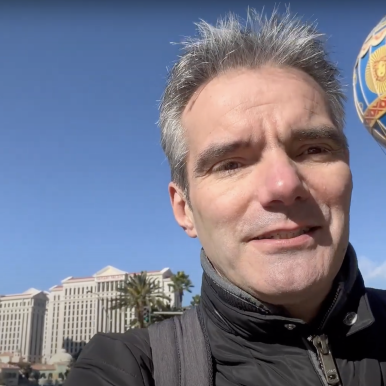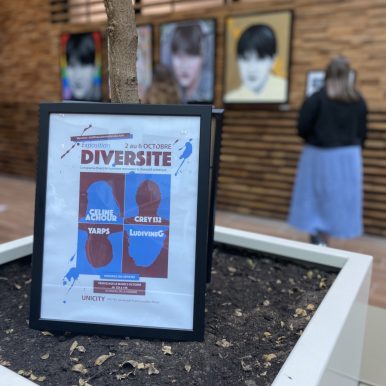“We want to demystify the notion of disability in companies, Wonjé Bytha, Diversity and People Care Manager
All unique, all as one: BNP Paribas Personal Finance wants to demystify the notion of disability in companies. Wonjé Bytha, Diversity and People Care Manager, tells us more.
In line with the policy in place at the BNP Paribas Group encouraging the employment of disabled persons, BNP Paribas Personal Finance has signed a new agreement which it has undertaken to update. The agreement is based on four key aspects: recruitment and induction, job retention, collaboration with the special facilities and support division, and the raising of awareness amongst all employees.
Could you please introduce yourself?
My name is Wonjé Bytha, I’m the Diversity and People Care Manager within corporate Human Resources, based in Levallois-Perret (France).
Could you outline the BNP Paribas Personal Finance disability policy for us?
The policy has been in existence since 2010, when the first agreement was signed. We are currently on the third agreement. The main goal of this policy is to provide people with disabilities the opportunity to apply for a position at the company and also to retain employees who declare themselves to be disabled.
It subscribes to a much broader policy; that of non-discrimination. We are proponents of equal opportunity.
What are the key aspects on which it is based?
The policy is based on four key aspects:
The first, main one is employee retention. Many of our actions are based on this.
The second concerns the recruitment and training of participants. We aim to open the door to disabled persons while at the same time training our recruitment executives and managers, encouraging them to abandon any preconceived ideas they may have.
The third aspect hinges on the raising of awareness. We are looking to change employees’ views on the notion of disability. We are looking to demystify the notion of disability in companies.
The fourth aspect concerns the manner in which disability is promoted outside of the company. To this end, we are putting into place partnerships with ‘ESACs’, specifically adapted companies able to accommodate persons with relatively severe disabilities who cannot be accommodated everywhere. Through our partnerships, we are aiming to encourage the employment of people with disabilities.
What sets the policy implemented by BNP Paribas Personal Finance apart from those of other groups? How does BNP Paribas Personal Finance take the notion of disability a step further than other companies?
Many companies have disability policies in place. At BNP Paribas Personal Finance, we are keen to address this topic on a daily basis, not only to meet certain legal requirements but also to evolve the thinking behind it. We have a genuine desire to incorporate our vision into a broader concept, which is equality for all. That is where everything is going to play out. Should we be able to evolve the thinking behind it, and the notion of disability is demystified, things will fall into place on their own. There will no longer be a need for a disability programme, we will no longer have to train managers, or support teams in welcoming people with disabilities, etc. Everything will be well anchored.
The cornerstone of our policy and what makes all the difference is our quest to demystify disability and build policies around it on a daily basis.
What are the positive stories you have written regarding certain cases of disability at BNP Paribas Personal Finance?
Two in particular come to mind. An association contacted us to discuss the situation of a young man looking for an internship as part of his second year of a Master’s degree in engineering. He had been diagnosed as being autistic, with Asperger syndrome. The association wanted to know if we would be able to accommodate him for his internship, despite his disability which could sometimes be difficult to manage internally. We said we could, and put a mechanism into place to support him and his teams from his arrival. It turned out to be a real success as much for the teams as for the young man himself, his manager and his mentor. Having an idea about the difficulties he could encounter, we were able to anticipate them. He had a great deal of difficulty handling noise and couldn’t go to the canteen when a lot of people were there. So his colleagues shifted their lunch hour to around 11:30am to allow the intern to have lunch with the rest of the team, and in the conditions that suited him. The experience was also beneficial for the teams, who were forced to challenge any preconceived ideas they may have had. The young man was subsequently recruited into a position at one of the Group’s subsidiaries.
There’s also the story of an employee who needed to come back to work but who, owing to her disability, could no longer take public transport or drive. This came at a time when working remotely wasn’t commonplace. On the basis of the agreement in place, we took responsibility for the travel arrangements of some of our employees. This allowed this person in particular, and others, to continue coming in to work as they had a car waiting to take them to work each morning and return them home in the evenings. They found this service to be invaluable. If this mechanism didn’t exist, these employees would no longer have been able to come to work.
What would you like to tell disabled persons who believe their disability is viewed as an obstacle to their working in companies?
Today, many things are put into place to ensure that employees are able to work, even if their position may not be exactly the same.
We encourage employees with disabled status to rise above the taboo. The more employees talk about it, the more colleagues are going to be dealing with disabled persons. This shows them that there’s nothing complicated or scary about it. Some employees work with disabled colleagues, and are not even aware of it.
In a few words, how would you describe the disabled persons policy implemented at BNP Paribas Personal Finance?
The first word that comes to mind is goodwill. Our disabled policy hasn’t just been put into place to meet certain regulatory or legal constraints. The aim is to genuinely take it a step further with a view to seeing things progress, which can only happen through goodwill, respect and tolerance.

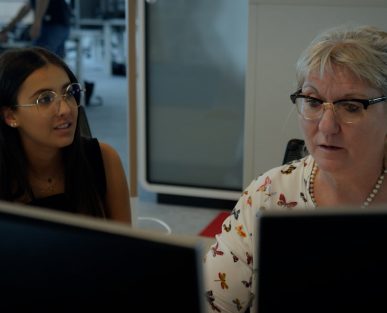
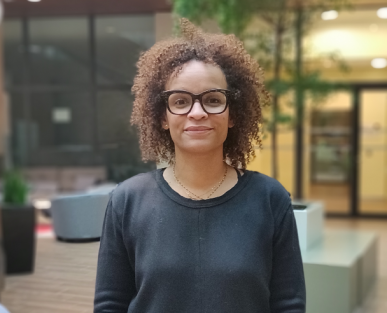


![[On The Way] Benoit Tholence – Sanka: a bike that takes the codes of the car, to replace the second car!](https://personal-finance.bnpparibas/app/uploads/sites/4/2024/03/visuel_site_pf_sanka-copie-386x386.jpg?1709651557)
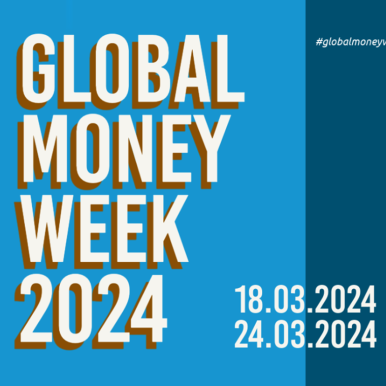

![[On The Way] Too Good To Go, for a world without food waste](https://personal-finance.bnpparibas/app/uploads/sites/4/2024/01/img_3617-386x386.jpeg?1706623554)
![[On The Way] Heïdi Sevestre – The melting of glaciers: it is urgent to consume sustainably](https://personal-finance.bnpparibas/app/uploads/sites/4/2023/12/heidi_sevestre_banner_echonet_2-386x386.png?1703587539)
